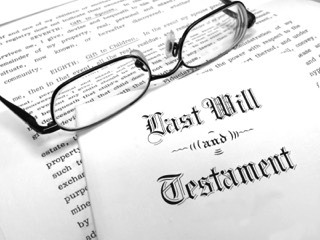The age-old tradition of bequeathing personal possessions to one’s descendants has its roots embedded deep within history. Ancient Egypt, for instance, had established codified laws surrounding inheritance as early as 2500 BCE. The concept matured as civilizations evolved, leading to the birth of what we recognize today in Western society as the “Last Will and Testament.” This evolution can be attributed to the innovative thinking of Solon, an influential Athenian statesman from around 630 – 560 BCE. Beyond his significant contributions to the birth of Greek democracy, Solon also redefined inheritance laws. In his era, Wills primarily catered to the elite Greco-Roman men who didn’t have natural heirs, offering them a structured method to distribute their vast wealth and properties.
Medieval Interpretations: The Evolution of Terminology and Practice
The middle ages in Europe witnessed a nuanced understanding of Wills and Testaments. The term “Will” evolved to specifically denote legal documents facilitating the transfer of real estate, while “Testament” became associated with the passing of personal items. This distinction played a pivotal role in how assets were viewed and transferred. In today’s Massachusetts, these medieval concepts have undergone further refinement. Presently, any individual, as long as they’re above 18 years and mentally sound, can draft their Last Will and Testament. The procedure mandates the presence of two impartial observers during the signing, ensuring that these witnesses have no personal gain from the document.
Modern-Day Mandates: The Essential Components of a Will
The contemporary legal landscape in Massachusetts doesn’t impose constraints on the length of a will. However, it places immense emphasis on clarity and precision. For a will to function smoothly and avoid potential legal disputes, it should lucidly detail the intended beneficiaries. Ambiguities could lead the Probate Court to intervene, potentially complicating the estate’s distribution process.
Extreme Examples: The Shortest and the Lengthiest Wills
Wills, over time, have varied immensely in length and detail. On one end of the spectrum, we have the succinct will of Karl Tausch from 1967. With just the words “Vse zene” (translating to “All to wife” in Czech), this is the briefest uncontested Last Will in recorded history. On the opposite end, we find Frederica Evelyn Stilwell Cook’s exhaustive will from 1919. This comprehensive document stretched over 1,066 pages, meticulously detailing her assets across four opulent leather-bound, gold-leaf embossed books.
Historical Gems: Wills that Made Headlines
The annals of history have recorded some truly captivating wills. Take, for instance, William Shakespeare’s will. While it might seem unusual, he bequeathed his “second-best bed” to his wife, Anne. This gesture gains significance when one realizes that during his time, the marital bed was often termed as the “second-best,” with the finest bed reserved for guests. Another monumental will is that of Alfred Nobel. His Last Will laid the foundation for what the world now celebrates as the Nobel Prizes.
Your Legacy Deserves the Best: Let’s Craft It Together
Your legacy is a reflection of your life’s journey, and its preservation is paramount. Don’t leave it to chance. At Reeves Lavallee PC, we understand the nuances of crafting a testament that mirrors your wishes perfectly. Whether you have an expansive estate or a modest asset base, your Last Will deserves the touch of experts. Contact us today and let’s ensure your legacy is passed on just as you envision. Your future generations are counting on it, and we’re here to assist every step of the way.
#LastWillEvolution, #LegacyPreservation, #HistoricalWills, #ModernLegalPractices, #WillsAndTestaments, #AncientToModern, #EstatePlanning

